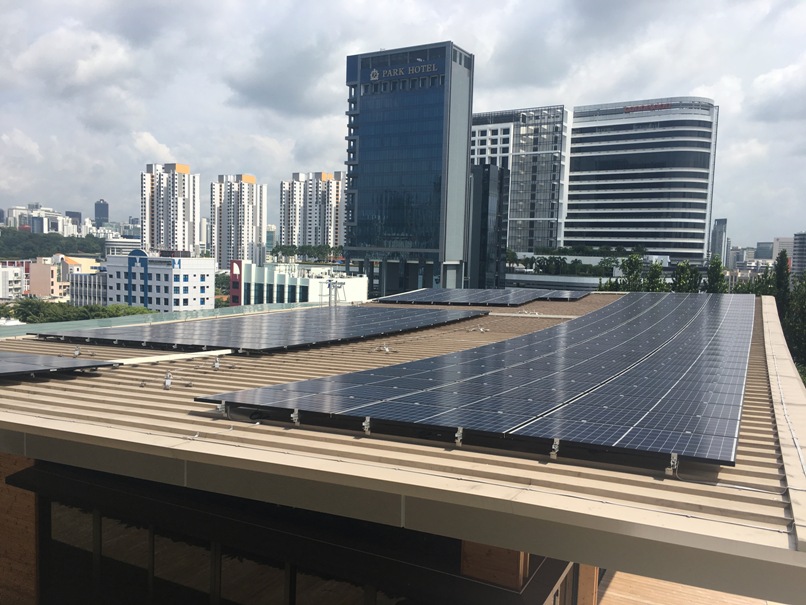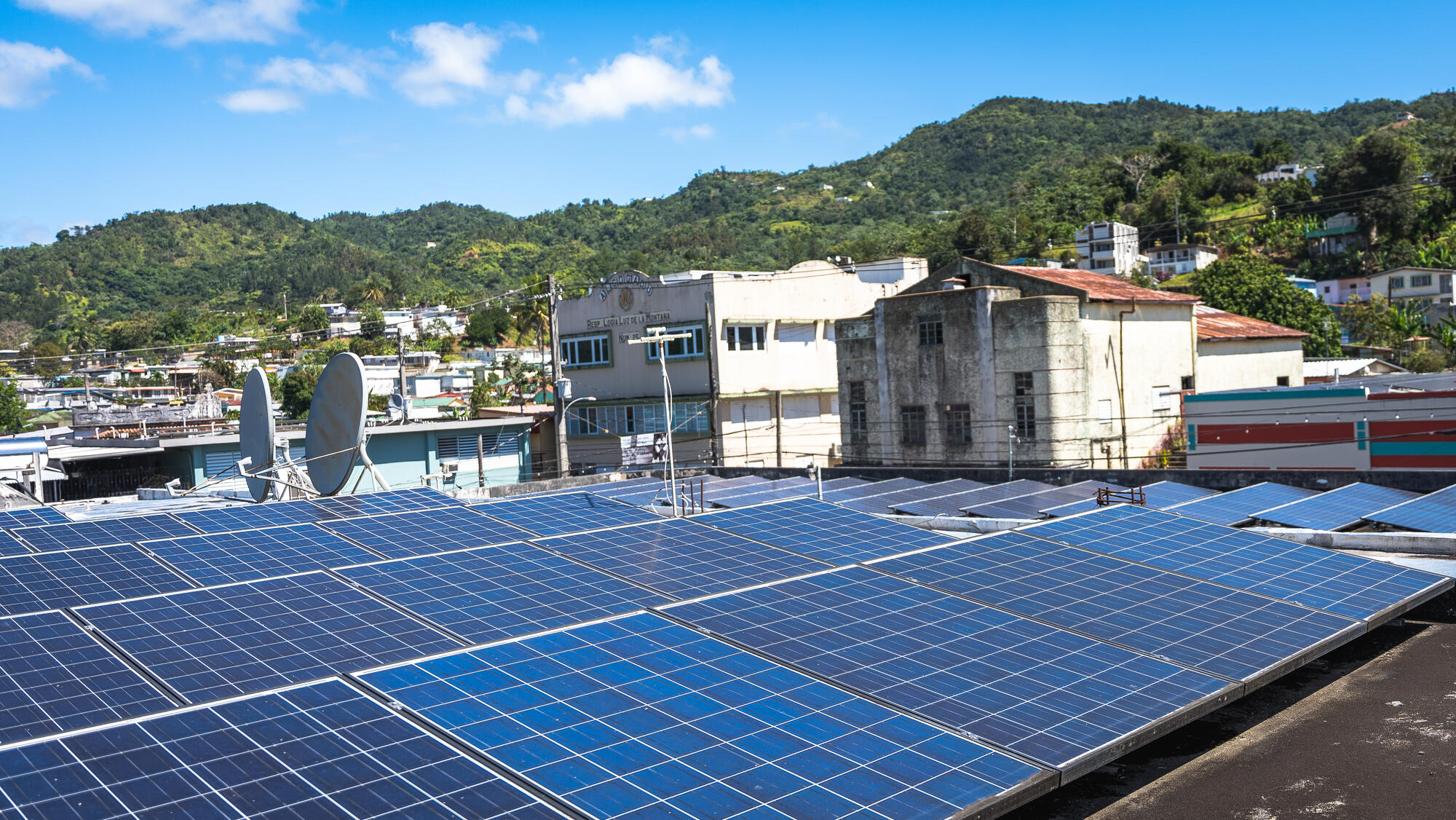
REC Group and new Singapore Sustainability Academy join forces to combat climate change
- REC Group’s solar PV system enables a zero-energy non-residential building – a global trend in the building sector and key driver to fight climate change
- 20 years of expertise in the solar industry to be shared in trainings and workshops
REC Group, a member of SEAS, is contributing in two ways to the SSA project:
First, REC Group will participate in the SSA education and training module by offering workshops, where REC Group experts will share their knowledge in renewable energy and especially in solar PV technology. For practical and training purposes, REC Group has sponsored a 2.65 kilowatt peak (kWp) ground-mounted solar PV installation.
Secondly, REC Group has donated a complete solar PV system of 168 REC TwinPeak panels with a total size of 44.5 kWp for the roof of the SSA building. The system will generate over 60,000 kWh of clean energy each year, mitigating 33 tonnes of CO2 emissions annually. The solar PV installation is expected to supply all required energy for the building, enabling the zero-energy building concept. This best practice example demonstrates that with the right high-quality solar PV system, even commercial buildings can be operated as zero-energy buildings, helping to increase the property’s value.
“As a global company with a state-of-the-art manufacturing facility in Singapore, we’re especially proud to contribute in helping Singapore to realize their sustainability goals,” says Steve O’Neil, CEO at REC Group. “Being an island state, the country is especially vulnerable to global warming. What drives our vision is the fact that solar PV technology can be a real economic game changer when it comes to reducing carbon emissions.”
From REC Group’s perspective, sustainable architecture of buildings is an important global issue and zero-energy houses are a key driver for the reduction of greenhouse gases. Approximately one third of the energy consumption is allotted to the building area due to space heating, room cooling, water heating and lighting. Many countries have therefore already developed and adopted guidelines for minimum requirements for new and existing private and commercial buildings. For example, the European Union requires all new buildings to be nearly zero-energy by the end of 2020, new public buildings by 2018, as outlined in its Energy Performance of Buildings Directive. In the United States, California targets all new residential constructions to be net zero-energy buildings by 2020 as outlined in the Statewide Energy Efficiency Strategic Plan.
“Zero-energy buildings, new constructions and the many existing ones, are critical in fighting climate change. Solar is financially competitive with conventional energy sources in many regions worldwide already today. A solar PV rooftop installation is therefore significantly reducing carbon emissions and electricity costs. This is demonstrated by some best-practice examples using REC Group panels, including the Tiger Beer brewery in Singapore, IKEA in Sweetwater, Florida, and the Audi A1 production plant in Brussels, Belgium,” adds O’Neil.
For further information please contact:
Agnieszka Schulze
Head of Global PR, REC Group
Leopoldstr. 175
80804 München
Tel.: +49 89 54 04 67 225
E-mail: agnieszka.schulze@recgroup.com
About REC Group:
Founded in Norway in 1996, REC Group is a leading vertically integrated solar energy company. Through integrated manufacturing from silicon to wafers, cells, high-quality panels and extending to solar solutions, REC Group provides the world with a reliable source of clean energy. REC Group’s renowned product quality is supported by the lowest warranty claims rate in the industry. REC Group is a Bluestar Elkem company with headquarters in Norway and operational headquarters in Singapore. REC Group employs more than 2,000 people worldwide, producing 1.4 GW of solar panels annually. Find out more at www.recgroup.com

